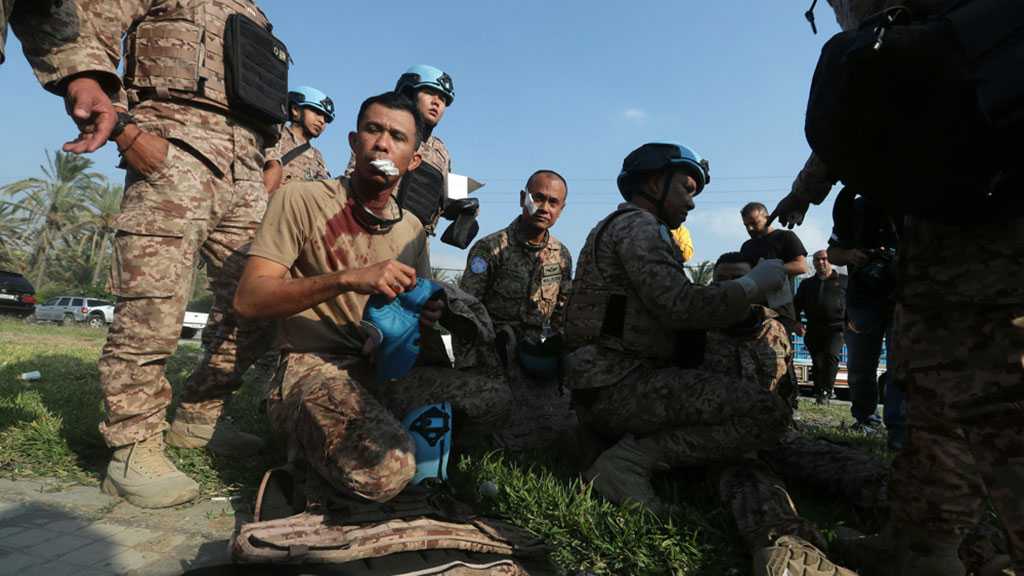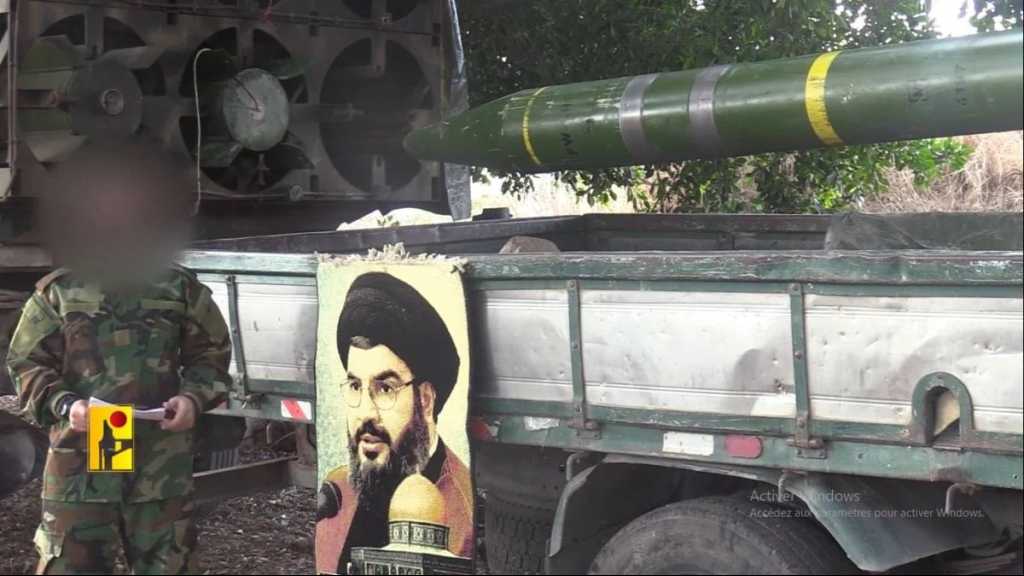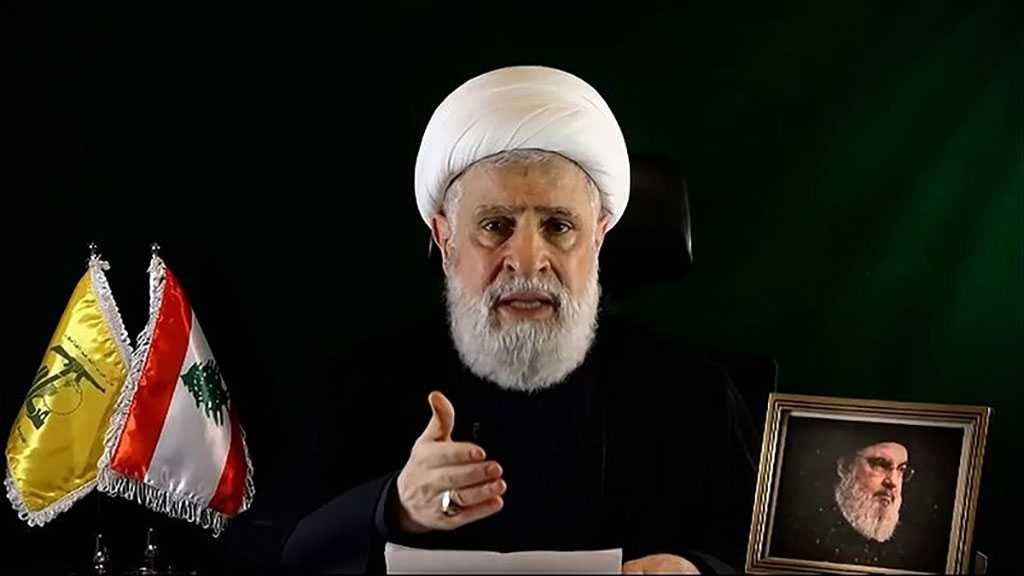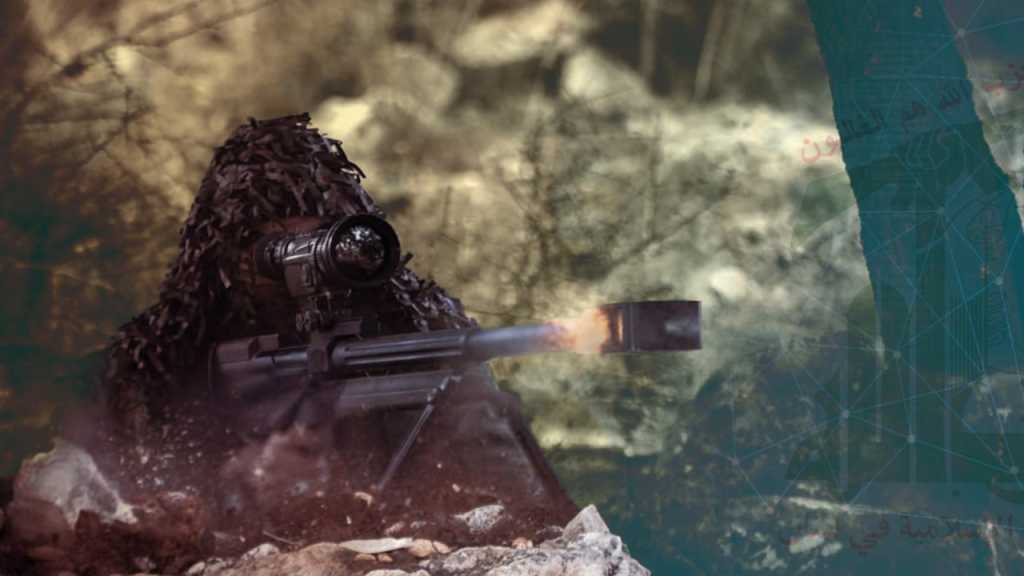Sayyed Nasrallah, Hariri Meeting: Beginning of New Era

Source: Al-Manar TV, 28-10-2008
At a time Lebanese were starting to lose hope reconciliations could succeed in uniting them and the Christian reconciliation was facing recurrent obstructions from here and there, the first meeting of its kind between Hizbullah Secretary General Sayyed Hassan Nasrallah and Future MP Saad Hariri came to change the equivalence, paving the way for additional steps aimed at consolidating national unity and preventing sedition.
Indeed, the meeting, characterized by the unprecedented veil of secrecy in which it was shrouded, constituted the domestic "event" in itself, the echoes of which were rapidly met with favorable reactions from all political factions in Lebanon and the region.
In this context, Lebanese President Michel Suleiman congratulated the Lebanese and the parties involved on the completion of the reconciliation between the two leaders. A delegation of the Lebanese Press Club visiting President Suleiman on Monday quoted him as saying that Lebanon should operate a repositioning along four axes, namely the international axis, the Arab League, the regional axis and the European axis.
For his part, Parliament Speaker Nabih Berri hailed the meeting and said that the situation was becoming more positive. "Things are moving in a more positive direction," Berri told Lebanese daily As-Safir on Tuesday. "The political spring that we are witnessing is prone to more consolidation" which could lead to a "permanent spring," Berri added.
As-Safir said Hariri informed Berri in a telephone conversation that his talks with Sayyed Nasrallah were positive. The speaker and the Future MP agreed to meet soon. Berri also told a Hizbullah delegation that the meeting would consolidate reconciliations, reflect positively on the national dialogue which will be held on November 5 and help discussions on the country's defense strategy.
Meanwhile, the head of the Democratic Gathering MP Walid Jumblatt told the daily that the meeting between Sayyed Nasrallah and MP Hariri was a continuation of the Doha accord, adding that the talks give an extra push to the national dialogue which will ultimately lead to reconciliation.
According to Jumblatt, the mentioned meeting showed that the conflict between the Lebanese is totally political, rather than sectarian or religious. "It falls within the spectrum of what I used to call for and still do concerning the possibility that everyone maintains his political position, and that we head to the elections in a modern, peaceful and democratic way away from the language of accusations of treachery which used to dominate political discourse," Jumblatt added.
Jumblatt expressed once again his readiness to meet with Sayyed Nasrallah. "Perhaps the meeting between me and Sayyed Nasrallah needs some introductions, but I have no problem with holding the meeting," he stressed.
But Jumblatt wasn't alone in this "readiness." Indeed, Lebanese Forces chief Samir Geagea declared he was also ready to hold such a meeting. Geagea hailed the meeting between Sayyed Nasrallah and MP Hariri as very positive.
For his part, Phalange Party leader former President Amin Gemayel welcomed the meeting, expressing hope it would lead to bolstering dialogue. A politburo statement also expressed hope the summit meeting would reflect on other leaders, especially Christian leaders.
The Arab League welcomed, in its part, the meeting between Sayyed Nasrallah and MP Hariri. "This meeting is a positive initiative for Lebanon which consolidates the national dialogue and opens new horizons for Lebanon's stability," Arab League Secretary General Amr Moussa said in a statement on Monday. He also said that the talks held on Sunday "consolidate unity" among the Lebanese.
SAYYED NASRALLAH, HARIRI MEETING LASTED FOR HOURS
Meanwhile, Lebanese who expressed happiness for the final completion of the summit meeting between Sayyed Nasrallah and MP Hariri were "forecasting" its details especially that secrecy seemed to be the meeting's main feature.
Lebanese and Arab dailies, covering the meeting in their first headlines, sought to be unique in the meeting's description or its details if found, reflecting the importance of the meeting believed to pave the way for another stage in the relation between rival factions.
Lebanese daily Al-Akhbar reported that the meeting went on for hours and was interrupted by dinner. It said the two leaders hugged and kissed at the beginning of the meeting and Hariri inquired about Sayyed Nasrallah's health after false rumors that he was a victim of a poison attack.
For its part, pan-Arab daily Al-Hayat reported it lasted three and a half hours and the discussions were marked by deep frankness. The two leaders tackled the most important events that have taken place in Lebanon starting with the July 2006 war until the May 7 incidents this year, al-Hayat reported. The two leaders, according to al-Hayat, agreed on assigning Hariri's bureau head Nader Hariri and Nasrallah's political aide Hajj Hussein Khalil to hold constant and direct contacts to solve any urgent matter or clashes among the two parties' supporters.
Lebanese daily As-Safir said that the long-awaited meeting between Sayyed Nasrallah and MP Hariri constituted a quality political event within the framework of attempts aiming to broaden the scope of the dialogue and achieve reconciliation among the Lebanese. The meeting didn't discuss any possible alliance in the upcoming parliamentary elections or cooperation of any kind, according to the daily.
At a time Lebanese were starting to lose hope reconciliations could succeed in uniting them and the Christian reconciliation was facing recurrent obstructions from here and there, the first meeting of its kind between Hizbullah Secretary General Sayyed Hassan Nasrallah and Future MP Saad Hariri came to change the equivalence, paving the way for additional steps aimed at consolidating national unity and preventing sedition.
Indeed, the meeting, characterized by the unprecedented veil of secrecy in which it was shrouded, constituted the domestic "event" in itself, the echoes of which were rapidly met with favorable reactions from all political factions in Lebanon and the region.
In this context, Lebanese President Michel Suleiman congratulated the Lebanese and the parties involved on the completion of the reconciliation between the two leaders. A delegation of the Lebanese Press Club visiting President Suleiman on Monday quoted him as saying that Lebanon should operate a repositioning along four axes, namely the international axis, the Arab League, the regional axis and the European axis.
For his part, Parliament Speaker Nabih Berri hailed the meeting and said that the situation was becoming more positive. "Things are moving in a more positive direction," Berri told Lebanese daily As-Safir on Tuesday. "The political spring that we are witnessing is prone to more consolidation" which could lead to a "permanent spring," Berri added.
As-Safir said Hariri informed Berri in a telephone conversation that his talks with Sayyed Nasrallah were positive. The speaker and the Future MP agreed to meet soon. Berri also told a Hizbullah delegation that the meeting would consolidate reconciliations, reflect positively on the national dialogue which will be held on November 5 and help discussions on the country's defense strategy.
Meanwhile, the head of the Democratic Gathering MP Walid Jumblatt told the daily that the meeting between Sayyed Nasrallah and MP Hariri was a continuation of the Doha accord, adding that the talks give an extra push to the national dialogue which will ultimately lead to reconciliation.
According to Jumblatt, the mentioned meeting showed that the conflict between the Lebanese is totally political, rather than sectarian or religious. "It falls within the spectrum of what I used to call for and still do concerning the possibility that everyone maintains his political position, and that we head to the elections in a modern, peaceful and democratic way away from the language of accusations of treachery which used to dominate political discourse," Jumblatt added.
Jumblatt expressed once again his readiness to meet with Sayyed Nasrallah. "Perhaps the meeting between me and Sayyed Nasrallah needs some introductions, but I have no problem with holding the meeting," he stressed.
But Jumblatt wasn't alone in this "readiness." Indeed, Lebanese Forces chief Samir Geagea declared he was also ready to hold such a meeting. Geagea hailed the meeting between Sayyed Nasrallah and MP Hariri as very positive.
For his part, Phalange Party leader former President Amin Gemayel welcomed the meeting, expressing hope it would lead to bolstering dialogue. A politburo statement also expressed hope the summit meeting would reflect on other leaders, especially Christian leaders.
The Arab League welcomed, in its part, the meeting between Sayyed Nasrallah and MP Hariri. "This meeting is a positive initiative for Lebanon which consolidates the national dialogue and opens new horizons for Lebanon's stability," Arab League Secretary General Amr Moussa said in a statement on Monday. He also said that the talks held on Sunday "consolidate unity" among the Lebanese.
SAYYED NASRALLAH, HARIRI MEETING LASTED FOR HOURS
Meanwhile, Lebanese who expressed happiness for the final completion of the summit meeting between Sayyed Nasrallah and MP Hariri were "forecasting" its details especially that secrecy seemed to be the meeting's main feature.
Lebanese and Arab dailies, covering the meeting in their first headlines, sought to be unique in the meeting's description or its details if found, reflecting the importance of the meeting believed to pave the way for another stage in the relation between rival factions.
Lebanese daily Al-Akhbar reported that the meeting went on for hours and was interrupted by dinner. It said the two leaders hugged and kissed at the beginning of the meeting and Hariri inquired about Sayyed Nasrallah's health after false rumors that he was a victim of a poison attack.
For its part, pan-Arab daily Al-Hayat reported it lasted three and a half hours and the discussions were marked by deep frankness. The two leaders tackled the most important events that have taken place in Lebanon starting with the July 2006 war until the May 7 incidents this year, al-Hayat reported. The two leaders, according to al-Hayat, agreed on assigning Hariri's bureau head Nader Hariri and Nasrallah's political aide Hajj Hussein Khalil to hold constant and direct contacts to solve any urgent matter or clashes among the two parties' supporters.
Lebanese daily As-Safir said that the long-awaited meeting between Sayyed Nasrallah and MP Hariri constituted a quality political event within the framework of attempts aiming to broaden the scope of the dialogue and achieve reconciliation among the Lebanese. The meeting didn't discuss any possible alliance in the upcoming parliamentary elections or cooperation of any kind, according to the daily.




